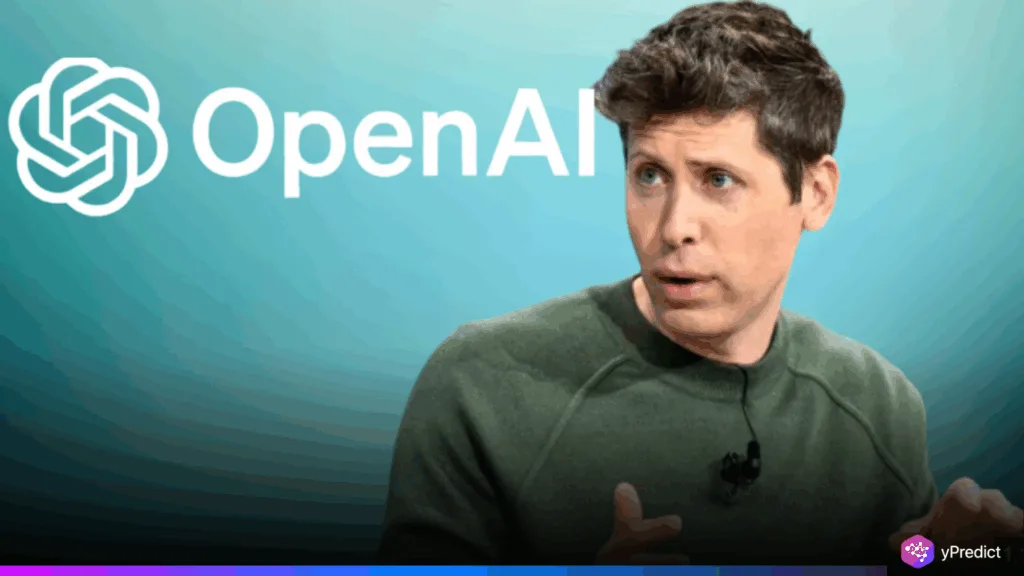
OpenAI is on the brink of rewriting records in the private market. The artificial intelligence leader, best known for developing ChatGPT, is reportedly in discussions for a massive stock sale worth $6 billion. If the deal goes through, the OpenAI valuation could soar to $500 billion, making it the most valuable private company in the world.
These discussions are occurring as AI transition from a niche to one of the major themes of investment strategies in the last decade. investors saw AI start-ups as experimental, above market speculative bets; they think of these companies as ‘the future.’ OpenAI’s rapid trajectory is indicative of this inversion, and its rising value suggests investors firmly believe OpenAI will play a key role at the center of the AI revolution.
If OpenAI were to be valued at $500 billion, it would be worth more than Elon Musk’s SpaceX, which is currently valued at approximately $350 billion; that direction would not only position OpenAI as possibly the ‘gem of the private market,’ but would also elevate it to the leading role of the global race for AI supremacy.
From Billions in Funding to Exponential Growth
OpenAI’s rise has been nothing short of extraordinary. Just last year, in October, the company was valued at $157 billion. By March, this number had nearly doubled to $300 billion after fresh funding rounds from investors including Microsoft and SoftBank. Now, within a few short months, the firm may reach an unprecedented $500 billion valuation, reflecting the strongest growth trajectory among modern technology startups.
Investors have poured at least $40 billion into OpenAI so far, signaling confidence in its long-term prospects. Many of these investors are not newcomers either. SoftBank, Dragoneer Investment Group, and Thrive Capital—all of whom have already invested in the firm—are reportedly exploring participation in the stock sale. Their continued interest highlights the strength of OpenAI’s business model and market position.
Surpassing SpaceX as a Private Market Leader
Perhaps the most significant implication of this agreement is that OpenAI could surpass SpaceX as the most valuable private company in the world. SpaceX is worth $350 billion. Let’s realize that $350 billion is an impressive number, but should the OpenAI valuation surpass $500 billion, it will be the largest private company valuation in the world.
This means more than just a number. This means artificial intelligence is a powerful catalyst not just for the future of the economy, but is influencing the future economy now. Space exploration is dream-worthy, but AI has quickly become a core component of the world of business, communications, and productivity. Investors appear to believe that AI companies along the lines of OpenAI will represent the next phase of global economic growth.
The Fierce AI Race Among Tech Giants
The international AI race is not simply about startups. Tech behemoths Meta, Google, Amazon, and Microsoft have capabilities beyond start-ups. Together, these four companies spent $155 billion on AI just in the year 2025. This figure includes hiring the best engineers, building and running cutting-edge datacenters, and ramping up compute to stay ahead.
For OpenAI, the challenge is clear. As a younger firm competing against trillion-dollar corporations, it must prove its ability to innovate consistently. The company’s advantage lies in its agility and its status as a pioneer. OpenAI’s leadership in language models has already placed it at the center of global AI conversations, but to justify a $500 billion valuation, it must continue outpacing rivals with cutting-edge breakthroughs.
Mixed Reactions to GPT-5 Launch
OpenAI has experienced mixed user responses to GPT-5, approached with significant buzz over its valuation. Some users seem to feel the quality of the writing had dropped from GPT-4, and commented on the lack of personality that made ChatGTP so popular in the first place. Given the level of criticism, it raises interesting questions about the direction of the company’s product strategy in amidst record valuations.
But CEO Sam Altman has not wavered from his long-term vision. He has consistently explained that OpenAI is pursuing “artificial general intelligence,” or AGI—an AI that is better at most tasks than human beings. At the launch of GPT-5, Altman shared that GPT-5 was “generally intelligent,” but cautioned that it still is not capable of continuous learning, which is a requirement for AGI.
What This Means for the Future of AI Investment
If the $6 billion stock sale materializes, it will show that private markets are willing to back AI innovation at record levels. The OpenAI valuation would stand as proof that investors now consider AI firms as core economic drivers, not speculative bets. It would also reinforce the belief that the AI industry is still in the early stages of unlocking its full potential.
This development may also drive more investments in this space, putting additional sales pressure on more startups and encouraging larger firms to accelerate research in the space. For now, all eyes are on the execution of the stock sale, who is involved, and if that $500 billion mark becomes a reality!
Final Thoughts
OpenAI’s goal to secure a $500 billion stock valuation is a watershed moment for AI. With billions in investment and a rapidly growing universe of investors, the company has taken its place at the front of AI developments and investment. In spite of challenges with product efficacy and any degree of competitive headwind, the company’s direction suggests that AI is taking hold of world markets.





